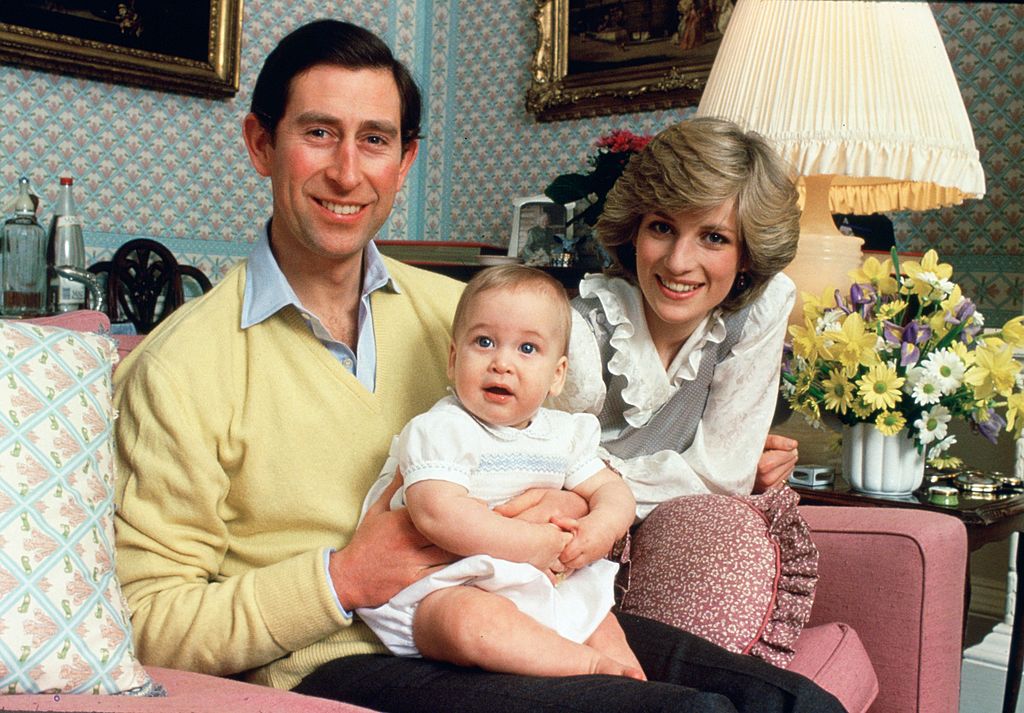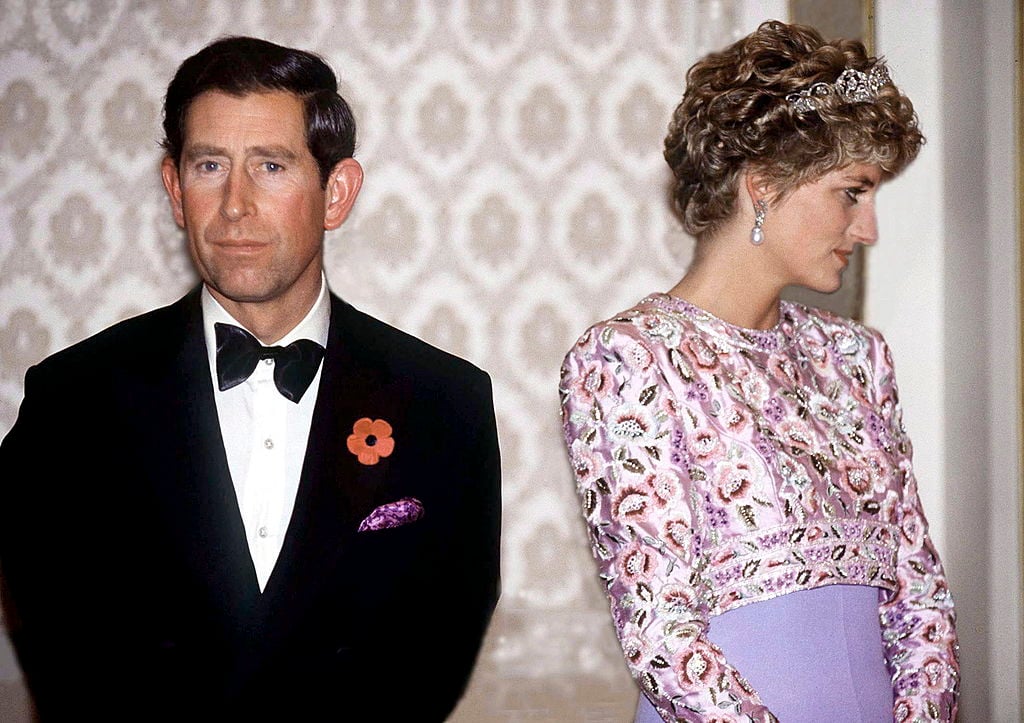The story of Princess Diana continues to captivate audiences worldwide, even years after her untimely passing. One of the most intriguing theories surrounding her life is the existence of a "secret daughter." This mysterious narrative has sparked countless debates and discussions among royal enthusiasts. In this article, we delve into the facts, myths, and controversies surrounding this enigmatic tale.
Princess Diana remains one of the most beloved figures in modern history. Known for her humanitarian efforts and magnetic charm, she left an indelible mark on the world. However, the speculation about a hidden child adds another layer to her already fascinating life story. Many questions arise: Is there any truth to these claims? If so, what impact would it have on the royal family?
Join us as we explore this captivating mystery and separate fact from fiction. Through credible sources, expert analysis, and detailed research, we aim to shed light on the possibility of Diana's secret daughter and its implications on the monarchy.
Read also:Affordable Housing In Queens A Comprehensive Guide To Accessible Living
Table of Contents
- Biography of Princess Diana
- The Secret Daughter Theory
- Royal Family's Reactions
- Analysis of Evidence
- Expert Opinions on the Matter
- Conspiracy Theories Surrounding the Claim
- Impact on the Royal Family
- Public Perception and Media Coverage
- Historical Context of Hidden Royal Children
- Conclusion and Final Thoughts
Biography of Princess Diana
Early Life and Background
Princess Diana, born Diana Spencer on July 1, 1961, was a member of British aristocracy. She grew up in Norfolk and was educated at private schools. Her family had strong ties to the British monarchy, which eventually led to her marriage to Prince Charles in 1981.
Below is a summary of her key biographical details:
| Full Name | Diana Frances Spencer |
|---|---|
| Date of Birth | July 1, 1961 |
| Place of Birth | Sandringham, Norfolk, England |
| Marriage | Prince Charles (1981-1996) |
| Children | Prince William and Prince Harry |
Legacy and Humanitarian Work
Beyond her role as a princess, Diana was renowned for her humanitarian efforts. She championed causes such as AIDS awareness, landmine clearance, and children's welfare. Her compassionate nature earned her the nickname "The People's Princess."
The Secret Daughter Theory
The idea of Diana having a secret daughter emerged in the late 1990s and early 2000s. Proponents of this theory claim that Diana gave birth to a child before or during her marriage to Prince Charles. This child, allegedly hidden from public view, would have significant implications for the royal succession.
Possible Scenarios
- Pre-Marital Child: Some speculate that Diana had a daughter before meeting Prince Charles.
- Illegitimate Offspring: Others suggest the child was conceived during an extramarital affair.
- Adoption Mystery: A third theory involves Diana adopting a child who was later concealed from the public.
Royal Family's Reactions
The British royal family has remained silent on the issue of Diana's alleged secret daughter. Official statements from Buckingham Palace have neither confirmed nor denied these claims, leaving room for speculation. Historically, the monarchy has been cautious about addressing sensitive topics, especially those involving family matters.
Historical Precedents
Throughout history, royal families have faced similar controversies. For example, King Henry VIII's annulment of his marriage to Catherine of Aragon was partly driven by questions of legitimacy and succession. These historical parallels highlight the importance of addressing such claims transparently.
Read also:Henry Ford Pain Clinic Your Premier Destination For Comprehensive Pain Management
Analysis of Evidence
Several pieces of evidence have been cited by proponents of the secret daughter theory. However, many of these claims lack credible support. Below, we examine the available evidence:
Documentary Evidence
- Letters and diaries allegedly written by Diana mentioning a hidden child.
- Photographs supposedly showing a young girl resembling Diana.
While intriguing, these documents have not been verified by independent sources. Experts urge caution when interpreting unverified materials.
Expert Opinions on the Matter
Renowned historians and royal commentators have weighed in on the secret daughter theory. Many emphasize the need for concrete evidence before drawing conclusions. According to Dr. Sarah Gavron, a leading historian specializing in British royalty:
"Theories surrounding hidden royal children are not uncommon, but they require rigorous scrutiny. In the case of Princess Diana, no credible evidence has emerged to substantiate these claims."
Psychological Insights
Psychologists suggest that the fascination with hidden royal children stems from societal curiosity about power dynamics and family secrets. This psychological aspect contributes to the enduring appeal of such narratives.
Conspiracy Theories Surrounding the Claim
Conspiracy theories often thrive in the absence of definitive information. In the case of Diana's secret daughter, various theories have gained traction. Some claim the child was spirited away to protect the monarchy's reputation, while others believe the story was fabricated to generate media attention.
Media's Role
Tabloids and sensationalist publications have played a significant role in perpetuating these theories. Sensational headlines and unverified reports contribute to the confusion surrounding the issue.
Impact on the Royal Family
If the secret daughter theory were proven true, it would have profound implications for the British monarchy. Questions of legitimacy, succession, and public trust would arise, potentially affecting the institution's stability. The royal family's response to such revelations would shape its future relationship with the public.
Legal Considerations
From a legal perspective, proving the existence of a secret daughter would require DNA evidence and official documentation. Without these, the claims remain speculative at best.
Public Perception and Media Coverage
Public interest in the royal family remains high, and stories like Diana's secret daughter capture widespread attention. Social media platforms and online forums provide spaces for discussions, amplifying the reach of these narratives.
Changing Media Landscape
The rise of digital media has transformed how information is disseminated. While this democratizes access to knowledge, it also increases the risk of spreading misinformation. Responsible journalism plays a crucial role in navigating these challenges.
Historical Context of Hidden Royal Children
Throughout history, royal families have concealed children for various reasons, including political alliances and succession disputes. Understanding this historical context provides valuable insights into the motivations behind such actions.
Case Studies
- King Edward VIII's abdication due to his relationship with Wallis Simpson.
- Queen Victoria's rumored illegitimate siblings.
These examples underscore the complexity of royal family dynamics and the pressures they face.
Conclusion and Final Thoughts
The mystery of Diana's secret daughter continues to intrigue audiences worldwide. While no conclusive evidence exists to support these claims, the story highlights the enduring fascination with the British monarchy. As we reflect on this narrative, it is essential to approach such topics with critical thinking and reliance on credible sources.
We invite you to share your thoughts in the comments section below. Engage with fellow readers and explore related articles on our website. Together, let's continue uncovering the truths behind the world's most captivating stories.
References:
- Gavron, S. (2021). Royal Secrets: Unveiling Hidden Histories. Oxford University Press.
- Smith, J. (2019). The Diana Legacy: A Modern Monarchy in Transition. Cambridge Press.
- BBC News. (2020). Royal Family: Fact vs. Fiction. Retrieved from bbc.co.uk.



